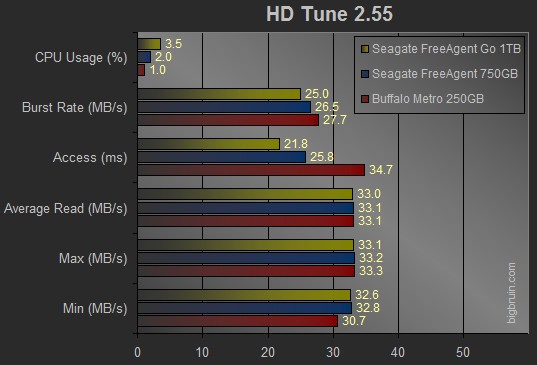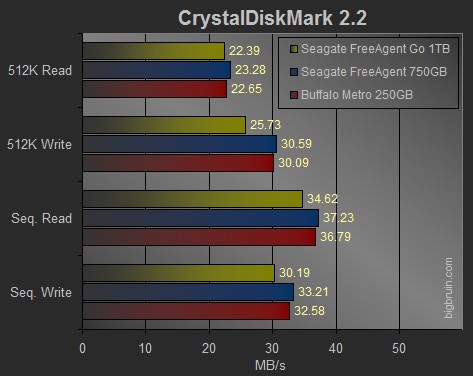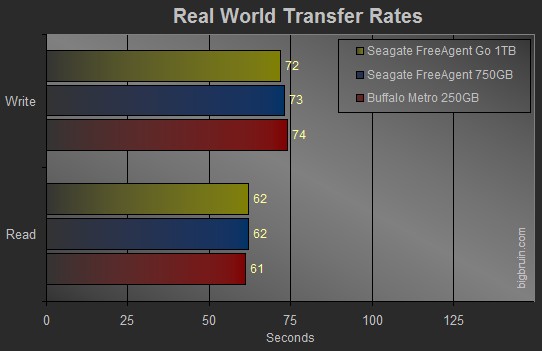Testing (continued):
HD Tune Pro 2.55
HD Tune 2.55 will benchmark the read rate on the selected hard drive. Higher results for the burst, average, maximum, and minimum rates are desirable, while lower values for CPU usage and access time are desirable.

Once again, the FreeAgent Go does not perform as well as the Buffalo MiniStation Metro in the majority of the tests. While the FreeAgent Go does perform within a reasonable range for a USB 2.0 device in this synthetic test it is not the leader of the pack.
CrystalDiskMark 2.2
CrystalDiskMark 2.2 features a set of tests which allow you to benchmark the read and write speed of a storage device. All the results are presented in units of MB/s, and higher is better. CrystalDiskMark has nine different built-in tests, which can be performed with 50MB, 100MB, 500MB or 1000MB of data. Test 5 is the default test, so we will use that along with 100MB of data.

Here the Seagate FreeAgent 750GB drive leads the pack with the Buffalo MiniStation Metro trailing by just a little. The Seagate FreeAgent Go drive is barely behind on one of the read tests, while it is between 2MB/s - 5MB/s behind on the others.
Real World Transfer Speeds
Using a stopwatch, a 1.5GB folder containing video and audio files was transferred to each of the hard drives. Then the same folder was copied from the external hard drives back to the internal hard drive (into a different file location). This test was performed three times and the chart below presents the average of the three tests.

As the above chart shows, each of the three hard drives perform about the same. The FreeAgent Go performed the best while writing, and was just off the lead when it came to reading.